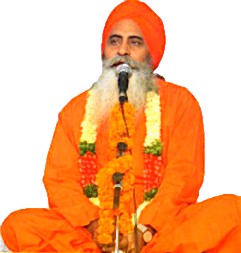List of honorifics used in Ananda Marga: Difference between revisions
Jump to navigation
Jump to search
(→References: Customs) |
m (→Acarya) |
||
| Line 3: | Line 3: | ||
== Acarya == | == Acarya == | ||
[[File:Ac Vishvadevananda Avt.png|thumb|Image of '''Acarya''' Vishvadevananda Avadhuta]] | [[File:Ac Vishvadevananda Avt.png|thumb|Image of '''Acarya''' Vishvadevananda Avadhuta]] | ||
''Ácárya'' means teacher, especially spiritual teacher. Ácárya for a male teacher, ácáryá for a female teacher. It is an honorific used to refer to teachers. The literal meaning of the word "ácárya" is "one who teaches by his own conduct"<ref>"Ácarańát pát́hayati iti ácáryah"</ref> (ácára means conduct). | |||
== Dada == | == Dada == | ||
Revision as of 06:32, 26 October 2013
This page includes a list of honorifics used in Ananda Marga or the Margis.
Acarya
Ácárya means teacher, especially spiritual teacher. Ácárya for a male teacher, ácáryá for a female teacher. It is an honorific used to refer to teachers. The literal meaning of the word "ácárya" is "one who teaches by his own conduct"[1] (ácára means conduct).
Dada
Dada is an honorific used to refer monks. The literal meaning of the word "dada" is "brother" or "elder brother".
Didi
Didi is an honorific used to refer nuns. The literal meaning of the word "didi" is "sister" or "elder sister".
References
- ^ "Ácarańát pát́hayati iti ácáryah"
